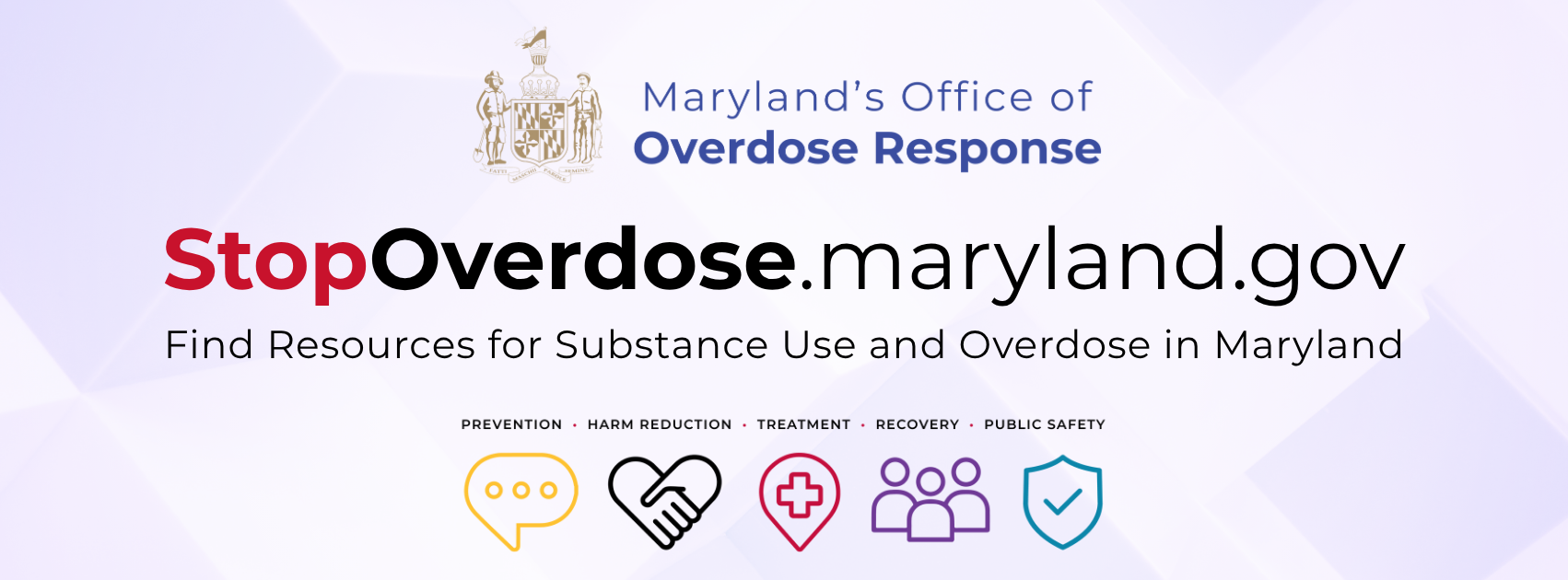Opioid Operational Command Center, Department of Health Release First-Quarter Opioid Data for 2020
For immediate release: June 10, 2020
As Fatalities Rise Slightly, State Responds to Coronavirus Impact on Substance Use Crisis
ANNAPOLIS, MD – The Opioid Operational Command Center and the Maryland Department of Health have released their report on the opioid crisis in Maryland for the first quarter of 2020. The report includes preliminary data for unintentional drug- and alcohol-related intoxication deaths for the period between January and March 2020.
In the first quarter of 2020, there were 561 opioid-related deaths in Maryland, a 2.6 percent increase from the first quarter of 2019. Additionally, there were increases in unintentional intoxication fatalities related to nearly all other major drug categories in Maryland, including substantial increases in both cocaine-related and alcohol-related deaths.
“While it is simply too early to understand the precise effect that the coronavirus pandemic has had on the state’s war against substance use, I can assure you that we recognize the threat that it poses to our progress in the fight and to some of our most vulnerable populations,” said Governor Larry Hogan. “I am pleased to announce that my administration has created the Maryland COVID-19 Inter-Agency Overdose Action Plan so that we can take steps immediately to ensure that systems and resources are in place for individuals in need of substance use services as a result of the pandemic.”
The first-quarter results represent a slight but disappointing shift in the direction of the state’s drug-related fatality numbers, which declined in 2019 for the first time in over a decade. There were 626 reported intoxication deaths from all types of drugs and alcohol, representing an increase of 0.8 percent from the 621 intoxication deaths reported in the first three months of 2019. Opioids accounted for 89.6 percent of all such fatalities. The synthetic opioid fentanyl was involved in 83.5 percent of all cases.
Supplementary data reveal that opioid-related emergency department visits and EMS naloxone administrations were down substantially in the first quarter of 2020. Typically, these statistics would rise in correlation with fatalities, and their declines indicate disruptions in our broader response systems that may have lingering effects on people who use drugs.
“We have always taken a holistic view when it comes to addressing the substance use problem in our state. The adjustments that we are making as a result of the coronavirus pandemic will continue to reflect that approach,” said Lieutenant Governor Boyd Rutherford, who serves as the chair of Maryland’s Inter-Agency Heroin and Opioid Coordinating Council. “Our response plan considers the array of social factors that play a role in this issue and help us to address its root causes – not just its symptoms.”
“Now is the time to redouble our focus on solutions, both established and new,” said Steve Schuh, executive director of the Opioid Operational Command Center. “Everybody involved in addressing the opioid crisis – every clinician, every advocacy group, every concerned parent, and every citizen – needs to renew their dedication to addressing this problem.”
“The OOCC is working closely with partners across the state to tailor a response to a substance use crisis that has taken a new form. With the measures outlined in our action plan, we hope to begin simultaneously stanching the immediate fallout from the pandemic and laying the groundwork for the months and years ahead,” said Schuh.
The 2020 First Quarter Report can be found here; the Maryland COVID-19 Inter-Agency Overdose Action Plan can be found here.
Before It’s Too Late is the state’s effort to bring awareness to the opioid epidemic and to mobilize resources for effective prevention, enforcement, and treatment. Marylanders struggling with a substance use disorder can find help at BeforeItsTooLate.Maryland.gov; through our state’s crisis hotline, Call 211, Press 1; or by texting their ZIP code to 898-211.

 1-888-373-7888
1-888-373-7888 233733
233733